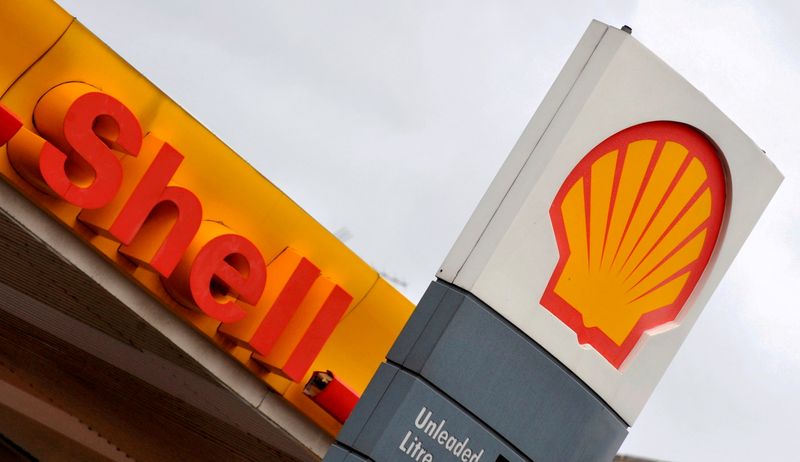By Shadia Nasralla and Ron Bousso
LONDON (Reuters) - Up until a few days ago, the leadership of British North Sea producer Siccar Point was negotiating the sale of a stake in the promising Cambo oil development to another private equity-backed company, NEO, sources told Reuters.
But on Thursday Royal Dutch Shell (LON:RDSa), Siccar Point's partner in the project, pulled its support for Cambo amid a wider public debate about the future of fossil fuels development in the North Sea. The deal with NEO, as well as the future of the 1.9 billion pound ($2.51 billion) project, were thrown into disarray, according to three industry sources.
Shell's decision sends a negative signal to other companies, investors and bankers who are thinking about putting money into the ageing basin, including by buying assets from majors, industry sources told Reuters.
The withdrawal from Cambo came several weeks after a British regulator rejected Shell's plans to develop another North Sea gas field, Jackdaw, whose future also remains in doubt unless Shell comes up with a revised plan that passes muster.
In its announcement on Thursday, Shell said Cambo was not economically viable. But company sources said the decision was also influenced by climate protests against developing new oil and gas resources in the North Sea, as well as public opposition to Cambo by Scotland's First Minister Nicola Sturgeon.
"It's an economic decision but that's not to say that the external environment doesn't impact the decision. It's about business risk," one Shell source said.
Siccar Point and Shell have delayed the decision on whether to develop Cambo several times in recent years, most recently due to the coronavirus pandemic. However, Siccar Point had been close to a deal with NEO, sources close to the matter said, although it was unclear what size stake was being discussed or what the value of the deal would have been.
"With the hurdles increasing for project approvals, the UK’s production decline is entirely predictable," said Yvonne Telford, senior analyst at Westwood Global Energy Group.
"There is a need for clear guidance on the future environmental requirements for developments. In addition, uncertainty around (Scottish) independence and the Scottish devolved Parliament position on future developments will not encourage companies to invest in new UK projects."
NEO declined to comment. Siccar Point declined to comment when asked about talks with NEO.
'TOXIC' CLIMATE
Oil companies including Shell and BP (NYSE:BP) have been major investors in the North Sea for decades. Despite scaling back their presence in the basin in recent years, they still consider it as central to their future in oil and gas as well as offshore wind operations.
While hosting the COP26 climate summit last month, Britain decided not to join an alliance of countries vowing to stop new oil and gas projects on their territory.
Growing pressure from investors, governments and climate activists, however, has led oil majors to scale back spending on oil and gas projects and increase investments in renewable energy in order to slash greenhouse gas emissions.
And if the UK government fails to make clear its support for investment in the sector after Shell's move, output from the mature North Sea oil and gas basin could fall more rapidly than previously expected, industry sources told Reuters.
"At the moment it's toxic," said one North Sea oil and gas source, speaking about how Shell's decision has impacted the investment climate in the British North Sea.
Oil and gas fields require regular investment in drilling new wells and fields in order to offset the natural depletion in other fields. The more mature the fields, the more investment is needed.
British oil and gas production at about 1.5 million barrels of oil equivalent per day (boepd), or about 1% of global oil demand, has fallen from a peak of around 4.4 million boe/d in 1999.
While investments in wells near existing fields are expected to continue, companies will now hesitate before making decisions on big capital projects.
"For the UK North Sea it is a bit depressing," said one source.
SHELL'S EXIT WELCOMED
Climate campaigners and some investors welcomed Shell's exit from Cambo, after activists pointed to a report by the International Energy Agency (IEA) saying that no new oil and gas projects should be developed in order to restrict global warming to 1.5 degrees Celsius.
Siccar Point and some politicians have said that halting new oil and gas development in the North Sea could leave Britain more reliant on higher-emissions imported fuel.
A spokesperson for the government said 75% of the UK’s primary energy demand comes from oil and gas at present and the decision on Cambo "is a commercial decision that has been taken independently by Shell."
Meanwhile, British courts have increasingly become an arena for climate activists trying to force an end to oil and gas production in Britain.
A Scottish court handed BP a win over Greenpeace in October in relation to a North Sea oilfield.But another case against the government and its Oil and Gas Authority is getting a judicial hearing at a High Court in London starting on Dec. 8 to determine whether tax breaks for oil and gas producers are legal.
Britain's treasury received around 248 million pounds ($329 million) from oil and gas production in the tax year 2020/21, a drop of 71% on the previous year, according to official data, due to a plunge in oil and gas prices during the pandemic.

This compares with 400 million pounds which the government paid oil and gas producers in 2016/17 due to tax arrangements when the oil price is low.
($1 = 0.7566 pounds)